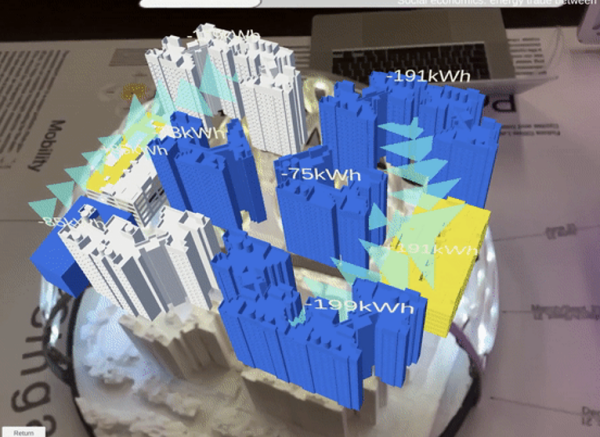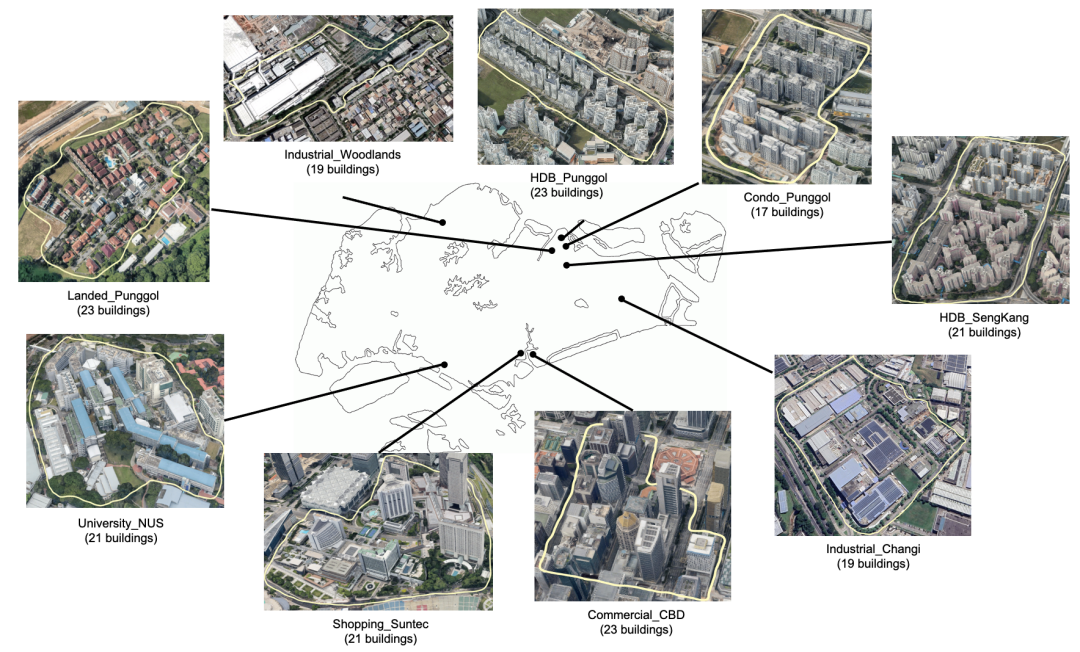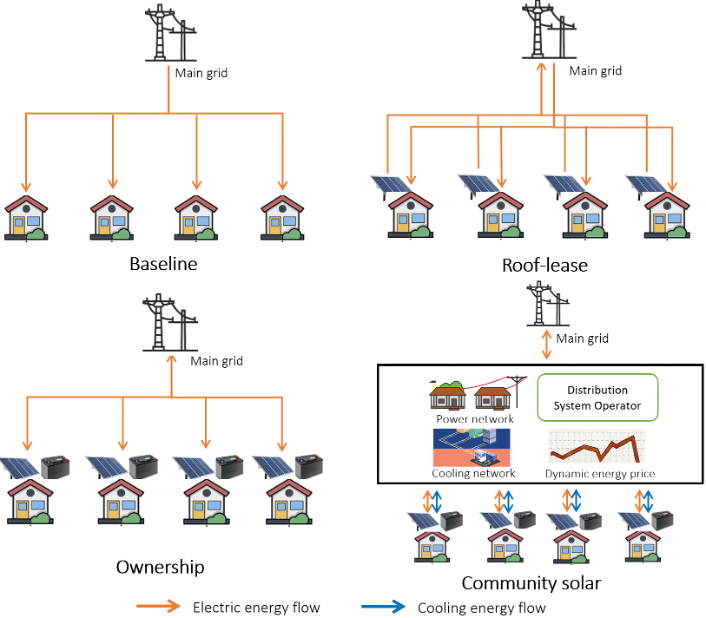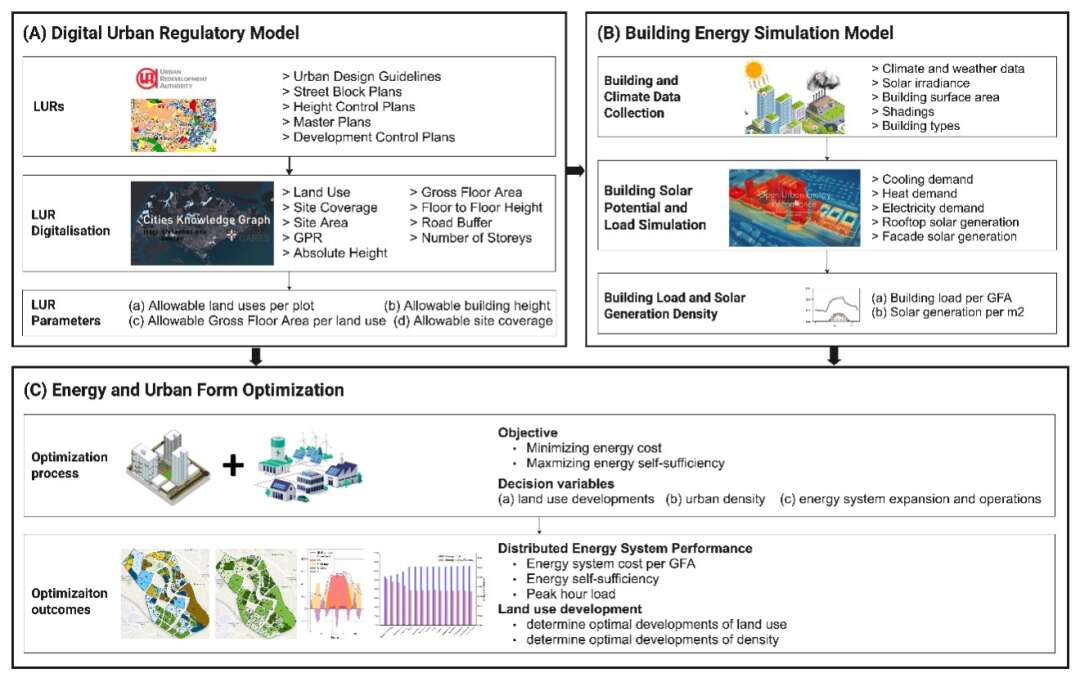
Singapore Neighbourhoods. Image from the presentation at the "Urban Solutions and Sustainability congress 2023", Singapore.
Socioeconomic factors in PV Deployment
Corresponding Author:
Coordinating decentralized CS investment via dynamic pricing
Community solar, an innovative business model for solar energy sharing, has gained widespread attention in recent years. While optimization has been extensively used for optimal capacity expansion planning in energy community, most studies focused on “centralized expansion planning”: a central planner decides on technology selection, sizing, and operation for the distributed energy resources (DERs) in the entire community. In this paper, on the other hand, we propose a stochastic-robust bilevel optimization approach to investigate a decentralized solution that aims to incentivize individual prosumers to invest and manage DERs on their owns but in a coordinated way, and we call it “decentralized expansion planning". We achieve it by modelling dynamic internal energy prices from the member’s individual energy supply and demand, therefore also acting as incentivize signals for private DER investment. Guided by such price signals, capacity investment and operation in the community is coordinated decentralized but towards a social optimum. The decentralized expansion planning problem under stochastic-robust setting is proven to be equivalent to a centralized problem that can be solved efficiently.
Figure 2. Integration of digital urban regulatory and energy system optimization models for land use and energy system planning



